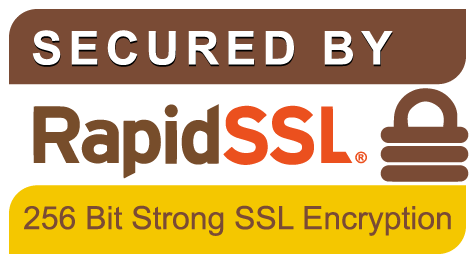
ONLINE MORTGAGE LOAN COMPARATOR COMPARE 20+ BANKS IN 2 MINS ONLY A SIMPLE ONLINE FORM TO FILL OUT FREE AND WITHOUT OBLIGATION
COMPARE 20+ FINANCIAL INSTITUTIONS IN 2 MINUTES
WITH ONLY ONE APPLICATION!
Whether it is for a new purchase, a pre-approval or a renewal, a mortgage broker can get you the best loan with the lowest interest rate, according to your needs and criteria.

COMPARE 20+ BANKS IN ONLY ONE STEP FOR YOUR MORTGAGE!
Fill out the form below and a mortgage broker from your area will rapidly contact you to help you find the best possible offer.



Fixed rate or a variable rate mortgage: Which one saves you more money?

If you are planning to buy a house, one of the most important decisions you will need to make concerns your mortgage. Homebuyers are always confronted by this proverbial question: to fix or to go variable.
You will need to understand the terms and conditions of a fixed rate and a variable rate mortgage to see which suits your financial goals and your personality better. It can be tricky to make the choice and you may need to speak to a mortgage broker to help you find the right solution for your needs.
Your choice will affect what you pay for your mortgage each month and how much the overall cost of your mortgage will be in the long run.
Read on to know more about fixed and variable rate mortgages to see which one can save you more money.
How do fixed rate and variable rate mortgages work?
Variable rate and fixed rate mortgages differ in several ways. In terms of funding, fixed rate mortgages are sourced from bonds purchased by a mortgage lender and then provided as a mortgage to a borrower and then sold back to the market as security based on income. In contrast, variable rate mortgages use the prime lending rate. The prime rate is determined by the Bank of Canada for all loans in the country.
In terms of interest, a fixed rate is predictable because it remains the same throughout the term whereas a variable rate mortgage has a fluctuating interest rate based on the prime.
The pros and cons of fixed and variable rate mortgages
Both types of mortgages have pros and cons that you need to consider before making your decision.
When you do the math, you can identify where you can save money and how you can sleep better at night.
| Fixed rate mortgages | Variable rate mortgages | |
| Definition | Has an interest rate that remains steady during the term. The mortgage payments and interest payments are set. | Has a fluctuating interest rate based on the prime rate. |
| Advantages | Less risky because your interest rate is set and won’t change regardless of market conditions. | Could be less expensive if interest rates are historically low |
| Disadvantages | You will be paying for a higher interest rate if market rates are down. | Carries some degree or risk and uncertainty. In cases when interest rates go up, your interest payments will increase and could pose financial constraints. |
| Risks | You will be paying a premium for locking in your rate by way of higher interest rates. | Monthly payments could increase significantly if rates rise |
You can speak to a mortgage expert from our network of over 100 mortgage brokers!
Get professional advice from qualified brokers near you, FREE OF CHARGE.
Fill out the form on this page to receive free proposals for your mortgage needs.
Why fixed rate mortgages remain popular
Today, fixed-rate mortgages remain popular, with only a small minority of mortgages having variable rates. Younger aged borrowers continue to prefer fixed rates while older borrowers choose variable rates.
With interest rates being historically low of late, the difference between a fixed and variable rate may be insignificant.
Perhaps, more people resist the temptation of variable rates (they are slightly lower) because they don’t want to have any risk when it comes to their mortgage. This is easy to understand because a mortgage represents something very important – your home.
Only you can decide whether a fixed rate mortgage is better for you or a variable rate mortgage. However, an experienced mortgage broker can explain to you the benefits of each one, based on your circumstances and your goals.
If you are unsure, it is best to speak to a qualified mortgage expert before coming to a decision. He can help you find the best mortgage product that suits your needs.
Can you really save money with a variable rate mortgage?
Variable rate mortgages are joined at the hip with the prime rate which is the interest rate that lenders use. A lender can choose to increase or reduce its prime rate which, in turn, increases or reduces the interest payment on a mortgage.
Since variable rate mortgages have lower interest rates than fixed rate mortgages, it is easy to say you can save money, even thousands of dollars with a variable rate.
However, there are times when the difference between the two is so slight that borrowers hesitate to take on the risk of a variable rate. Is it better to go with a fixed rate in this case even if the rate is higher? If security is important to you, by all means, you can consider getting a fixed rate. Think of it as paying a premium for your sense of security and peace of mind, sort of like buying an insurance on your mortgage rate.
To really understand if you can save money by going with a variable rate, let’s do a quick comparison.
Example of Fixed Rate and Variable Rate Mortgage
|
Fixed Rate |
Variable Rate |
Fixed Rate (Closed) 5-year term |
Variable Rate (Closed) 5-year term |
|
| Purchase Price ($480,000 with a 20% down-payment of $96,000) |
3.14% | 2.44% | 3.14% | 2.44% |
| Amortization Period (20 years) |
20 years | 20 years | 25 years | 25 years |
| Monthly Payment | $2,153 | $2,021 | $1,845 | $1,709 |
** these figures are for illustration purposes and may vary at the time of application and depends on your choice of lender
Based on the above figures, the difference in the monthly payments may seem small but calculate it for the duration of the term and you will be surprised at the big difference. Over a 5-year term, the difference in interest payments between a fixed and variable rate mortgage could run up to as much as $7,920.
Is lower always better?
Most borrowers always want the lowest interest rates and that is important. But always make sure that you look ahead and make sure that the terms of your mortgage are in keeping with your goals.
You must consider your ability to make pre-payments especially if you are anticipating a large sum of money in a year or two or if you plan on selling the house before the term and buying a new one.
Fixed rate/closed mortgages provide stability in terms of interest but limited flexibility such as in switching lenders or renegotiating the terms.
The best mortgage will also depend on all other things combined to give you as much savings, convenience, and flexibility as possible.
Talk to a mortgage broker and find out which one is really the best mortgage for you!
Switching from a fixed rate to a variable rate or vice-versa during mortgage renewal
When renewing a mortgage, it is critical to assess whether your interest rate is competitive and if your mortgage terms are still in line with your financial goals. A lot of changes can happen over time and our needs change. If you have a fixed rate now, should you switch to a variable rate when you renew your mortgage or vice-versa?
Before you sign on the dotted line to renew with your current lender, it is worthwhile to check on the interest rate. Many mortgage experts recommend that switching from a fixed rate to a variable rate would make sense only when there is a 1.00% difference between the two. Recently, the spread has become negligible, and switching from a fixed to a variable rate (and taking on a higher risk level) does not really pay off.
With the prime rate being historically low right now, and with the very small differential between fixed and variable rates, factoring in peace of mind and security, 5-year fixed rate mortgages are still advantageous particularly to borrowers who don’t like risks.
Breaking a Mortgage: Reasons to break a mortgage and the pros and cons
What does breaking a mortgage mean? Sometimes, you may realize that your current mortgage is no longer in tune with your needs. If you want a change in the terms and conditions of your contract before the end of its term, you will need to renegotiate it. But that would mean breaking your current contract and replacing it with a new one.
Some instances when a borrower would want to break a mortgage contract include:
- Interest rates have decreased
- Changed financial circumstances
- Selling the home to buy a new one or a need to relocate
You could be charged by your lender a significant penalty for breaking a mortgage contract. You must consider the cost and the benefits before you decide. You should speak to your lender or get advice from an experienced mortgage broker about your options.
The Fees for Breaking a Mortgage Contract
If your lender agrees to allow you to break your mortgage contract, there will be a prepayment penalty. If you are taking out a new one with the same lender, your lender may consider reducing the penalty.
It is advisable to verify how much the prepayment penalty is and if there is an administrative fee or appraisal fee. There may also be a fee for removing the charge on your present mortgage and making a new registration.
Changing Lenders
If you find another lender offering lower interest rates or better terms than your current lender, you may also want to break your mortgage contract. Again, there may be a prepayment penalty involved and you need to evaluate whether the penalty is offset by the benefits you will gain.
There are situations when breaking your mortgage contract makes financial sense. One of the benefits of working with a good mortgage broker is that he can advise you accurately, provide you with all of your options, and make sure that you are making the right move that would benefit your situation.
A mortgage broker can also negotiate on your behalf so that you come out a winner and not a loser.
Fill out our short online request form to connect with a reliable mortgage broker in your area,
This service is ABSOLUTELY FREE and NO OBLIGATION.
Our network has over 110 experienced brokers representing +20 financial institutions.
How to find the best mortgage rates and save on costs
Keep in mind that if you choose a variable interest rate, it can go up or down during the term. Interest rates are very difficult to predict. You must think about how much more you can afford to pay for your mortgage in case interest rates increase.
If you decide on a variable rate, you generally get a lower interest rate than a fixed interest rate. Overall, many Canadians save money on their mortgage costs by choosing a variable rate mortgage.
To protect yourself, you may discuss with your lender or your broker about the following:
Interest rate cap: this is the maximum rate that your lender can charge for your mortgage. If interest rates increase, you won’t be charged higher than the interest rate cap.
Convertibility: Ask if you can convert or change from a variable rate to a fixed rate at any time during your term. You may be given a slightly higher interest rate if you ask for a convertibility feature.
Choose the right mortgage for you: Get help from a mortgage broker
Whether to choose a fixed rate or a variable rate mortgage is just one of the many questions you will face when getting a mortgage. New rules have made it more difficult to qualify for the 5-year fixed rate mortgage which has been popular among many Canadians. Those who want a 5-year fixed rate mortgage would need to pass a new “stress test” to make sure they can make their payments even if mortgage rates increase.
With so much at stake, it is important that you have help from an expert, a qualified and licensed professional, who can guide you in choosing the best mortgage for your needs and qualifying for the best rates.
Find a good mortgage broker you can rely on from our vast network of licensed mortgage brokers!
Just fill out our short form on this page and we will happily connect you with a broker that matches your criteria.
With more than 110 experienced brokers and +20 financial institutions, you can be sure to find the mortgage that you need and save time and money.


